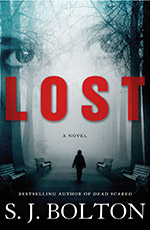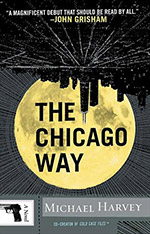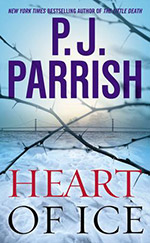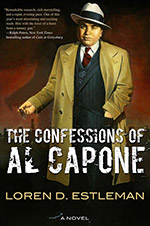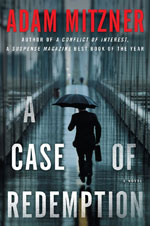Loren Estleman has written a lot of books, but many of them have been in one or another of his excellent series, so when he writes one that isn’t, it’s news. Actually The Confessions of Al Capone more resembles one of his westerns or Detroit novels than an Amos Walker effort because it’s a historical saga that uses a fictional character to portray a period of high lawlessness and great social change, seasoned with the presence of actual figures and events.
 The set up is typical masterful Estleman – a low level F.B.I functionary, Peter Vasco, is one day brusquely summoned to the highest level of power, J. Edgar Hoover himself. Peter assumes he’s going to be canned, but in fact he learns that Hoover has groomed him for a long cherished ambition, to once and for all learn the secrets of Al Capone. Scarface is greatly diminished in 1944, in exile in Florida, having been paroled from his tax evasion prison rap, riddled with syphilis and waiting to die. Hoover’s plan is masterful, if manipulative, and Peter is uniquely equipped to carry it out. He’s an almost priest, having left the seminary just short of graduation, and thus equipped to travel down to Miami, masquerade as a padre and hear the addled Al’s final confessions. His entree to the tightly controlled Capone household is his own father, once a driver for Capone in Chicago and now a fishing boat owner in Fort Lauderdale. Peter’s relationship with both his father and the church for which he’s to pose as a father is conflicted, so there’s a lot of soul searching involved with his pursuit of Capone, but he’s also glad, in these war years when Al’s racketeer colleagues have turned to black market profiteering, to be able to do something to help the war effort. read more
The set up is typical masterful Estleman – a low level F.B.I functionary, Peter Vasco, is one day brusquely summoned to the highest level of power, J. Edgar Hoover himself. Peter assumes he’s going to be canned, but in fact he learns that Hoover has groomed him for a long cherished ambition, to once and for all learn the secrets of Al Capone. Scarface is greatly diminished in 1944, in exile in Florida, having been paroled from his tax evasion prison rap, riddled with syphilis and waiting to die. Hoover’s plan is masterful, if manipulative, and Peter is uniquely equipped to carry it out. He’s an almost priest, having left the seminary just short of graduation, and thus equipped to travel down to Miami, masquerade as a padre and hear the addled Al’s final confessions. His entree to the tightly controlled Capone household is his own father, once a driver for Capone in Chicago and now a fishing boat owner in Fort Lauderdale. Peter’s relationship with both his father and the church for which he’s to pose as a father is conflicted, so there’s a lot of soul searching involved with his pursuit of Capone, but he’s also glad, in these war years when Al’s racketeer colleagues have turned to black market profiteering, to be able to do something to help the war effort. read more
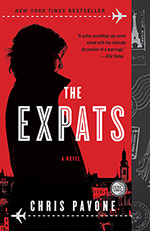 I’m not big on spy thrillers and they haven’t been a big part of the genre for awhile – though it’s making a comeback, certainly, with the success of authors like Vince Flynn or the slyly imaginative Mike Lawson. Pavone brings yet another take.
I’m not big on spy thrillers and they haven’t been a big part of the genre for awhile – though it’s making a comeback, certainly, with the success of authors like Vince Flynn or the slyly imaginative Mike Lawson. Pavone brings yet another take.
